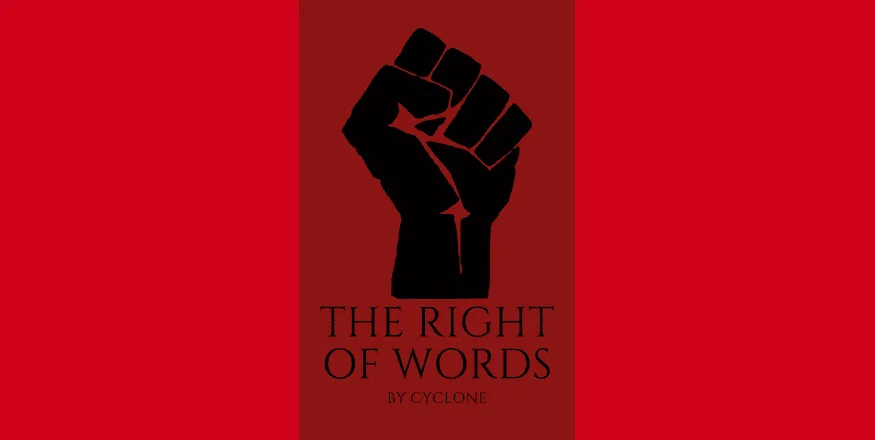III. Barricade
What defines a boundary? Is it a mere line drawn in the sand, a fragile construct meant to safeguard or imprison? Or is it the unyielding resolve of one soul declaring, “This far, and no further”? Life is a tapestry of invisible barricades, woven with threads of limitations and thresholds we often forget to honor. Yet, these barricades are not just obstacles; they are sentinels of respect and harmony—guardians of what we hold sacred.
The concept of limits often reveals itself subtly. It begins as a whisper in the mind, a soft nudge from conscience reminding us of where the line should be drawn. But as the currents of society and personal ambition roar, those whispers are drowned by the thunderous desire to push past what is permissible. A worker, for instance, may be told to stretch beyond their hours, their limits tested in the name of “commitment.” A friend may step too far into another’s personal struggles, breaking an unspoken rule of distance in their bid to “help.” In these moments, the barricades stand firm but battered, reminding us of their presence.
Boundaries exist not as tools of exclusion but as frameworks for coexistence. They delineate what is mine and what is yours, what is acceptable and what is intolerable. When people force their way past these lines, chaos follows. Consider a scenario in which a colleague demands answers to personal dilemmas that were never theirs to solve. The pressure builds, the atmosphere thickens, and the sense of safety shatters. Boundaries, when ignored, do not vanish—they erupt, leaving destruction in their wake.
Breaking down barricades by force has never been a noble endeavor. It is an act of aggression cloaked as determination, a violation masquerading as curiosity. Relationships, both personal and professional, crumble when force replaces understanding. Imagine a leader who disregards the mental health of their team, pushing them beyond their capacity under the guise of “potential.” Such actions do not inspire growth; they incite rebellion, exhaustion, and despair. The barricades are not enemies to be conquered but guides pointing us toward balance.
True strength lies not in testing the barricades of others but in respecting them. It is the act of stepping back and acknowledging that every soul deserves their space, their limits. To honor someone’s boundaries is to declare, “I see you, and I respect what you need.” This is the foundation of trust, the bedrock of harmony. Yet, respect must also be extended inward. How often do we betray our own limits in the name of pleasing others or chasing impossible dreams?
Consider a teacher who, despite being overwhelmed, agrees to additional responsibilities out of guilt. Each task chips away at their peace until the barricades of self-preservation collapse. The consequences of ignoring one’s own boundaries are no less severe than disrespecting those of others. They lead to burnout, resentment, and the haunting realization that the greatest betrayal was self-inflicted.
Barricades also serve as mirrors, reflecting the fragility of human relationships. How we navigate these barriers defines our character. There are those who press against them gently, seeking to understand what lies beyond. And then there are those who crash through, leaving splinters of trust behind. Yet, amidst the clamor, there is beauty in the pauses—the moments when someone approaches the barricade with care, not to break it but to honor its existence.
Limits should not be seen as constraints but as the architecture of mutual respect. They allow us to love without suffocating, to guide without dictating, to connect without consuming. Boundaries make room for individuality in a world desperate for unity. Without them, the lines blur, and relationships lose their meaning, collapsing under the weight of unspoken tensions and unmet expectations.
The beauty of barricades lies in their duality. They protect yet invite; they separate yet connect. A boundary is not a wall but a gate—a choice to open or close, to let in or keep out. The true power of limits is not in their rigidity but in their ability to foster understanding. For every barricade respected, a bond is strengthened. For every limit honored, a foundation of trust is laid.
As we walk through life, we must carry this truth with us: no one’s barricades are more significant than another’s. The barriers we set for ourselves are as vital as those we encounter in others. And when those limits are crossed, when the barricades crumble, the consequences are not just personal. They ripple outward, affecting families, friendships, communities, and beyond.
In the end, boundaries are not about division but about definition. They define who we are, what we value, and how we wish to be treated. They are not the enemy of progress but its ally, ensuring that growth does not come at the cost of integrity. To live without boundaries is to live without identity, to lose oneself in the endless demands of a world that seldom knows when to stop.
As the sun sets on the day’s endeavors, let us reflect on the barricades that shape our lives. Let us honor them, not with fear but with gratitude. For they are not barriers to our freedom but bridges to our understanding. And in respecting them, we find the strength to navigate a world that often forgets where the lines are drawn.
So, ask yourself: Where are your barricades? And when you find them, do not rush to tear them down. Instead, stand before them with humility, for they are not obstacles but protectors, not prisons but pathways to a life lived with dignity and respect.
22Please respect copyright.PENANA2X7E9TTLxD
22Please respect copyright.PENANA1lRSbrbfA7
22Please respect copyright.PENANA2jwxpEGMos


































